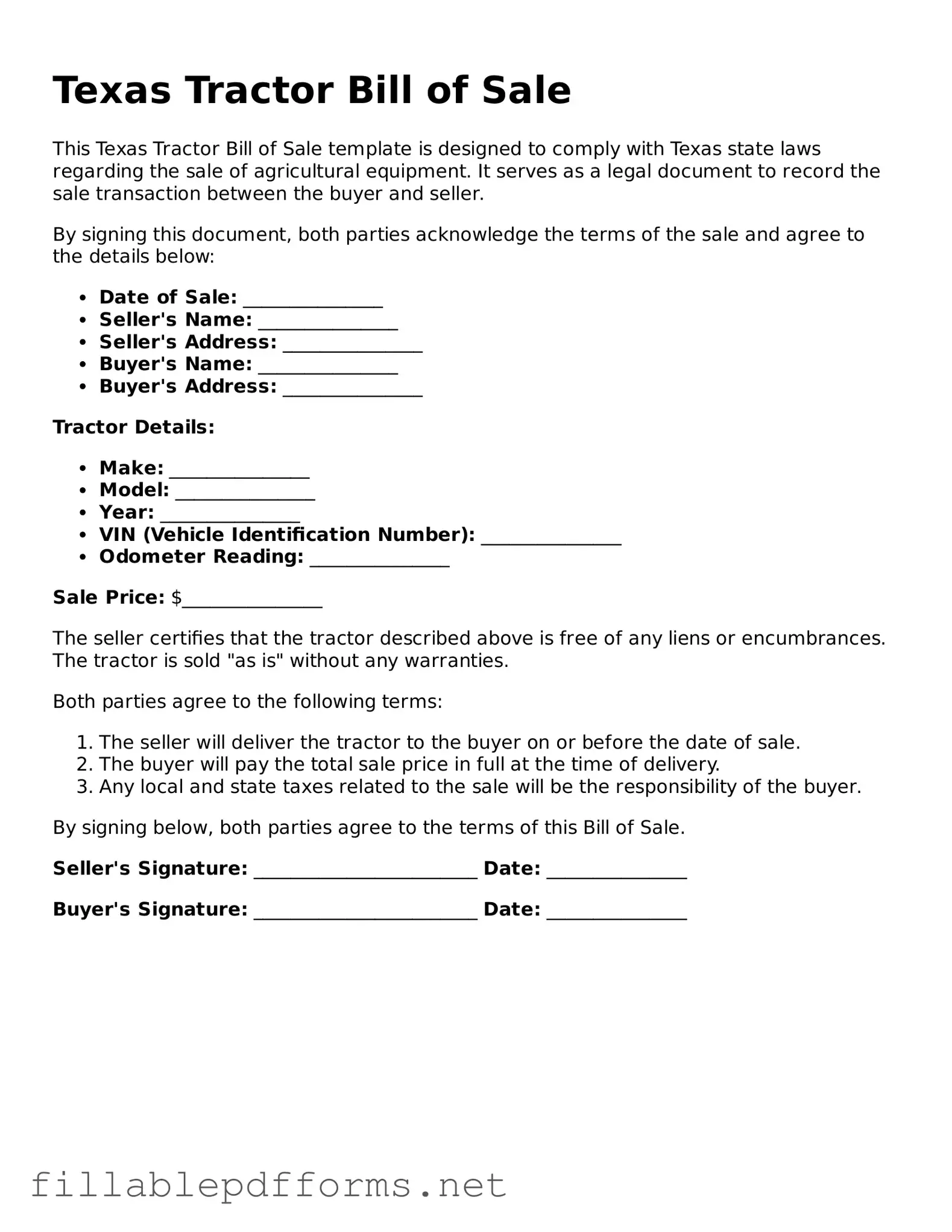Attorney-Verified Tractor Bill of Sale Form for Texas State
The Texas Tractor Bill of Sale form is a legal document used to record the sale and transfer of ownership of a tractor in the state of Texas. This form serves as proof of the transaction between the buyer and the seller, detailing important information such as the purchase price, vehicle identification number, and the parties involved. Utilizing this form can help ensure a smooth transfer of ownership and protect the rights of both parties.
Launch Editor Here

Attorney-Verified Tractor Bill of Sale Form for Texas State
Launch Editor Here

Launch Editor Here
or
▼ Tractor Bill of Sale PDF
Almost there — finish the form
Complete Tractor Bill of Sale online fast — no printing, no scanning.